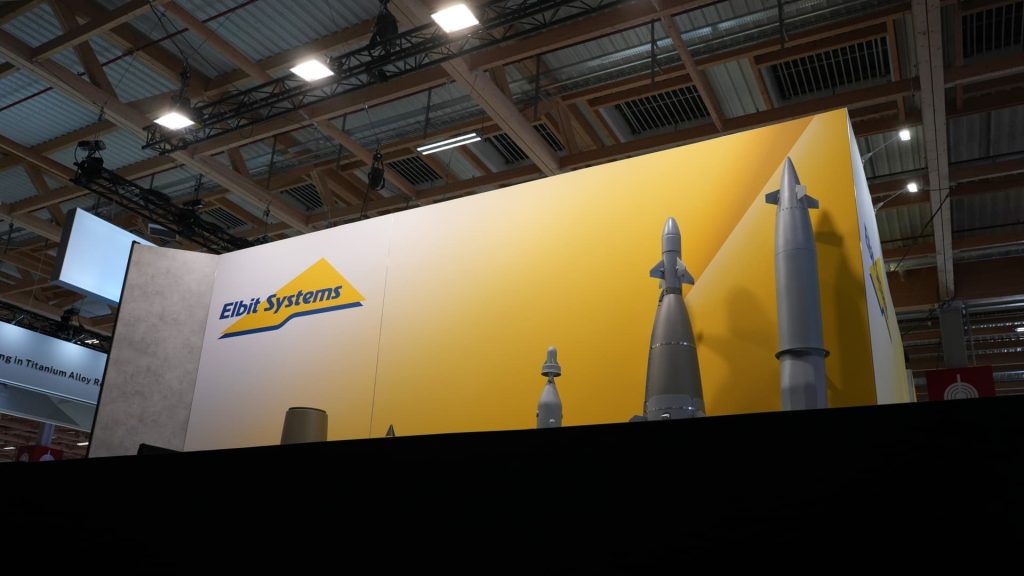The Paris Air Show, a prominent venue for showcasing military technology, faced controversy as Israeli defense firms experienced unexpected restrictions on their displays. The French government intervened, demanding that certain military systems be removed from the exhibitions held by companies like Israel Aerospace Industries (IAI) and Elbit Systems. This incident reflects rising geopolitical tensions and a complex relationship between Israel and France, amid a backdrop of military operations and international scrutiny.
| Article Subheadings |
|---|
| 1) Overview of the Controversy at the Paris Air Show |
| 2) Details of the Dispute and Reactions |
| 3) Contextualizing the Geopolitical Landscape |
| 4) Implications for International Defense Markets |
| 5) Summary of Ongoing Tensions |
Overview of the Controversy at the Paris Air Show
The Paris Air Show, held at Le Bourget Airport, has become a focal point of contention between the Israeli defense industry and the French government. On June 16, 2025, the first day of the event, Israeli firms faced unexpected barriers that limited their ability to showcase advanced military technologies. Key players like Elbit Systems and Israel Aerospace Industries (IAI) found their pavilions blocked off by boards set up by the exhibition organizers, reportedly in response to directives from Paris officials. This intervention has sparked accusations from Israel, claiming that it undermines international exhibition norms.
Details of the Dispute and Reactions
The Ministry of Defense in Israel articulated their outrage, labeling the French actions as “outrageous” and “unprecedented.” According to officials, the French government demanded the immediate removal of offensive weaponry displays, which diverges from established protocols seen in other defense-related exhibitions around the globe. The decision to create obstructive barriers overnight left Israeli representatives unable to enter their booths.
“Last night, just one day before the Paris Air Show opened, exhibition organizers acting on behalf of the French government ordered the removal of offensive weapons systems from Israeli defense industry pavilions,”
stated the Israeli Defense Ministry, emphasizing their resistance to the imposed conditions.
Contextualizing the Geopolitical Landscape
The backdrop of this incident cannot be separated from the heightened geopolitical tensions in the region. Tensions between Israel and Iran have reached alarming levels with ongoing military confrontations and air strikes. This has prompted heightened scrutiny from global players, including France, which has openly criticized Israel for its military operations, particularly concerning Gaza. The joint statements issued by France, the United Kingdom, and Canada reflecting their concerns about humanitarian conditions underline the complex dynamics at play. Moreover, defense market considerations, where French industries face competition from Israeli technologies, could also be influencing the French government’s stance.
Implications for International Defense Markets
The events at the Paris Air Show signal a potentially pivotal shift in international defense markets. The friction stemming from this incident may influence how Israeli firms operate within Europe, potentially complicating future exhibitions and partnerships. With defense expenses increasing globally, firms will need to navigate a challenging landscape characterized by political implications tied to their technologies. As Elbit and IAI planned to unveil innovative systems like the PAWS-2 infrared missile warning system, the cancellation of such displays sends a warning to technological competitors and allies alike regarding operational constraints and shifting alliances.
Summary of Ongoing Tensions
As this dispute unfolds, it is evident that the foundation of the Israeli-French relationship is being tested amidst a backdrop of military, commercial, and political interests. The air show, a significant event for both defense and aviation, now serves as a stage for broader diplomatic disagreements. The actions taken by French officials seem to reflect an amalgamation of interests—from mitigating regional conflicts to safeguarding local industries—while simultaneously opening up debates surrounding the role of defense expos in fostering international collaboration.
| No. | Key Points |
|---|---|
| 1 | Israeli defense firms faced barriers at the Paris Air Show over the removal of specific military displays. |
| 2 | The French government’s intervention has raised accusations of discrimination from Israeli officials. |
| 3 | Geopolitical tensions between Israel and Iran are mirrored in the air show controversy. |
| 4 | The Paris incident may influence how defense firms interact in European markets going forward. |
| 5 | The situation highlights the precarious nature of international defense exhibitions amid political dynamics. |
Summary
The restrictions imposed on Israeli defense displays at the Paris Air Show not only reflect the complexities of international diplomacy but also underline the broader ramifications for defense industries facing geopolitical pressures. As nations navigate an increasingly intertwined web of political relations, the consequences of such actions may resound well beyond the confines of a single exhibition, potentially reshaping alliances and market dynamics in the defense sector.
Frequently Asked Questions
Question: What caused the restrictions on Israeli defense displays at the air show?
The restrictions were reportedly ordered by the French government due to the inclusion of offensive weapon systems that are local competitors of French manufacturers.
Question: How have Israeli officials responded to these measures?
Israeli officials have condemned the actions as discriminatory, claiming that they violate norms observed in international defense exhibitions.
Question: What are the broader geopolitical implications of this incident?
The incident reflects the heightened tensions between Israel and Iran and highlights the complexities of international relations where military and commercial interests intersect.
